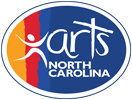No Budget Veto Override and What It Means for the Arts

On Tuesday January 14th, the NC General Assembly came back to Raleigh for an incredibly brief session lasting only a few hours. However, just hours before the sessions in both chambers were scheduled to begin, Senate Pro Tem Phil Berger (R-Rockingham) announced that there would be no vote taken in the NC Senate to override Governor Roy Cooper’s veto of the budget citing a lack of the votes needed to do so. Republicans and Democrats alike left the building that day blaming each other for the inability to pass a biennium state budget thereby ensuring that we will hear much more about this during the 2020 election cycle. But what does all this mean for the arts and where do we go from here?
While the budget for the state of North Carolina did not become law as a result of the Governor’s veto, we can use this document and the events of the last twelve months to better identify the areas where we are succeeding as well as recognize trends which require our attention.

Had this budget passed, it would have provided the largest increase in over a decade to NC Arts Council Grant funding in a biennium budget. NC Arts Council grants funded under General Grants, such as State Arts Resources, Education, Veterans, and a variety of other grant programs will receive the same allocation as they did in the last fiscal year. However, the considerable funding increases for the Grassroots Arts Program Grants ($500K in FY20 and $850K in FY21) will not occur. Without a budget, North Carolina reverts to only those allocations listed as “recurring” in the prior year’s budget, which means the “non-recurring” NC Arts Council funding increases from FY19 will not be allocated this year and Grassroots Partner Organizations will receive funding very similar to FY18.
In addition, bipartisan support of arts education bills in both chambers of the NC General Assembly (HB56 & SB238) paved the way for the content of those bills to be embedded in the budget legislation. This propelled us closer than we have ever been to the establishment of an Arts High School Graduation Requirement in North Carolina to ensure access to arts education for every student in the state.
All of these efforts were emboldened and made possible by Arts North Carolina through the Caucus on the Arts and Arts Education (which Arts NC worked to create), the work of our professional lobbyist throughout the year, the coordination of grassroots advocacy efforts, and the continued success of ARTS Day.

While there were elements of this budget that were concerning, we are now able to address those concerns with a more focused and unified message. No arts organizations that were named in line item allocations will receive those dollars. It is unfortunate that several capital projects in that number, which do not have any other mechanism to receive state funding, will not be supported. However, this allows us to identify the need to strengthen our message in support of the thorough, equitable, and accountable grant programs of the North Carolina Arts Council which fund operational and programmatic expenses for nonprofit arts organizations statewide. This budget cycle also saw legislative efforts to make the Grassroots Arts Program less equitable and inclusive by restricting new funding from being allocated to certain counties. This has shown that we must work even harder with our legislators to promote increases in equitable and accountable public funding in all 100 counties.
As Arts North Carolina looks forward to the 2020 session of the NC General Assembly, our $1 for the ARTS initiative to increase NC Arts Council grant funding to $10 million will once again be the goal that unites artists, arts leaders, and arts advocates from across the state. We will also continue our efforts to the establish an Arts High School Graduation Requirement in North Carolina and support other initiatives that advance arts education. We will work with arts advocates from across the country to promote public funding and policy for the arts at the federal level. And we will continue to connect and empower our own North Carolina arts community, not only to advance our statewide vision, but to help form alliances and start conversations that will strengthen and celebrate the arts in every town, city and county across our creative state.

